Subscribe for more!
Subscribe to our newsletter for insights and articles on wide ranging issues including reputation management, branding, advertising, awareness, advocacy, and communications. You can unsubscribe anytime.
Follow us on social:
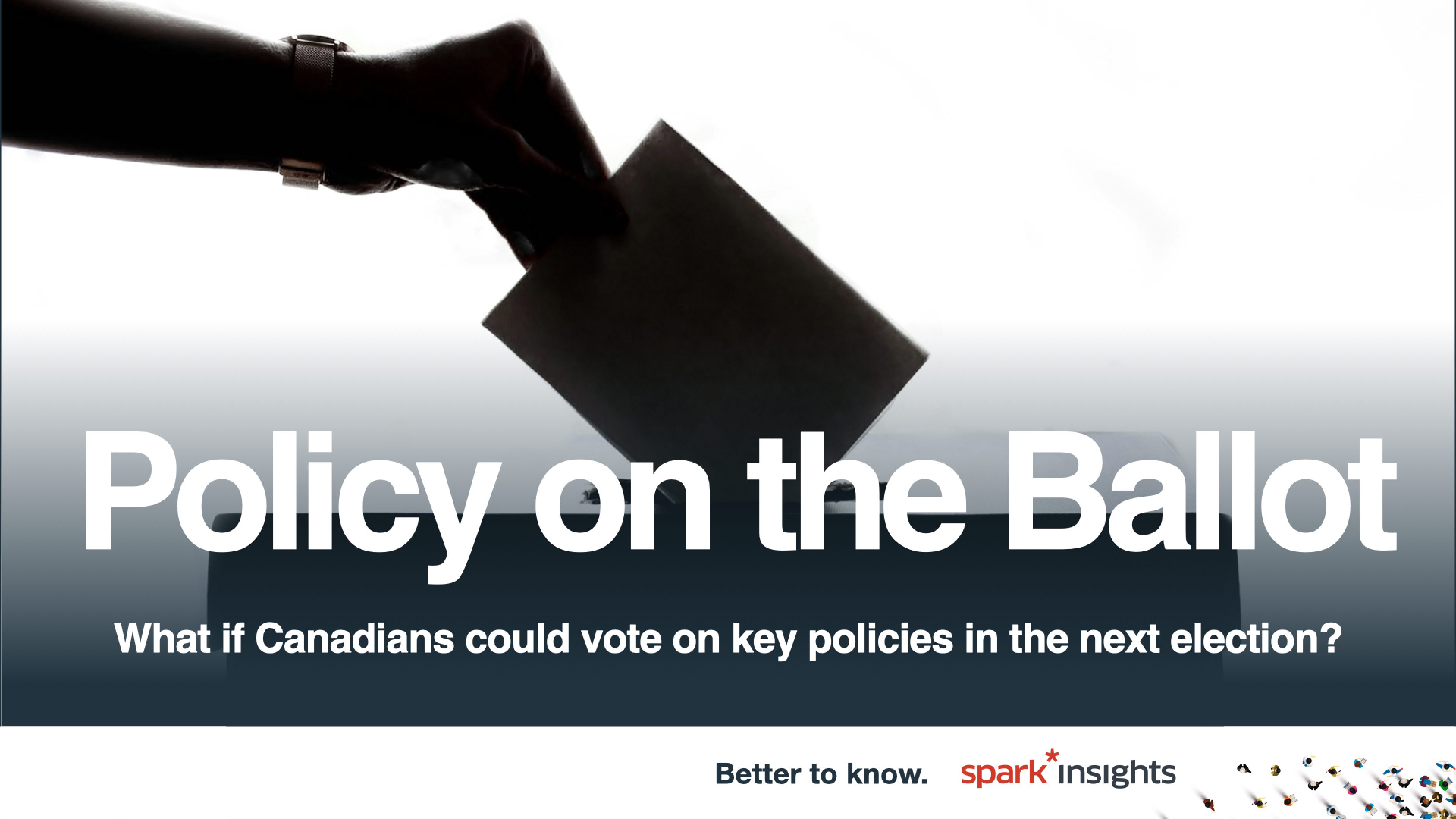
Canadians would vote yes on freedom to access abortion services, yes to climate action and no to breaking up the CPP
In our latest national spark*insights survey, we explored the idea of adding plebiscite questions to a ballot that voters could use to express their preferences at the time of the next election. These findings are based on a national online survey of 2876 adult Canadians, conducted online, between the dates February 9th and 19th, 2024.
Do Canadians like the idea of plebiscites?
We posed this question: Some have suggested that when Canadians vote in the next election there should also be a chance to offer your opinion on 2-3 questions of public policy at the same time as you are voting for the candidate of your choice... unlike in a referendum, the results would help inform the next government but wouldn't require action. Would you say this is a good idea or a bad idea...
A very large majority (82%) said this was a good idea, including 26% who said it was a very good idea. Support for the idea was widespread across all generations, regions, and subgroups of the population. More than 80% of the supporters of every major party endorse the idea.
We then asked people how they would vote on three hypothetical questions.
Should the Canada Pension Plan be maintained as a national program?
88% said they would vote yes, including 91% of Liberal voters, 92% of NDP voters, 89% among BQ voters, and 83% among Conservative voters.
Should women have the freedom to access abortion services in Canada?
84% would vote yes, including 90% of Liberal voters, 91% of NDP voters, and 78% among Conservative voters.
Should Canada put a priority on helping fighting climate change?
68% said they would vote yes, including 87% of Liberal voters, 82% of NDP voters, but just 48% among Conservative voters
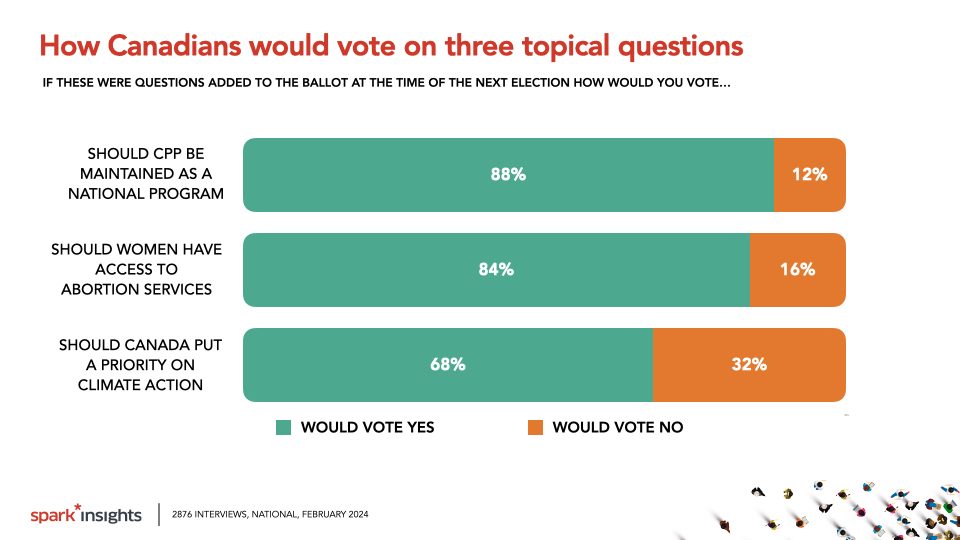

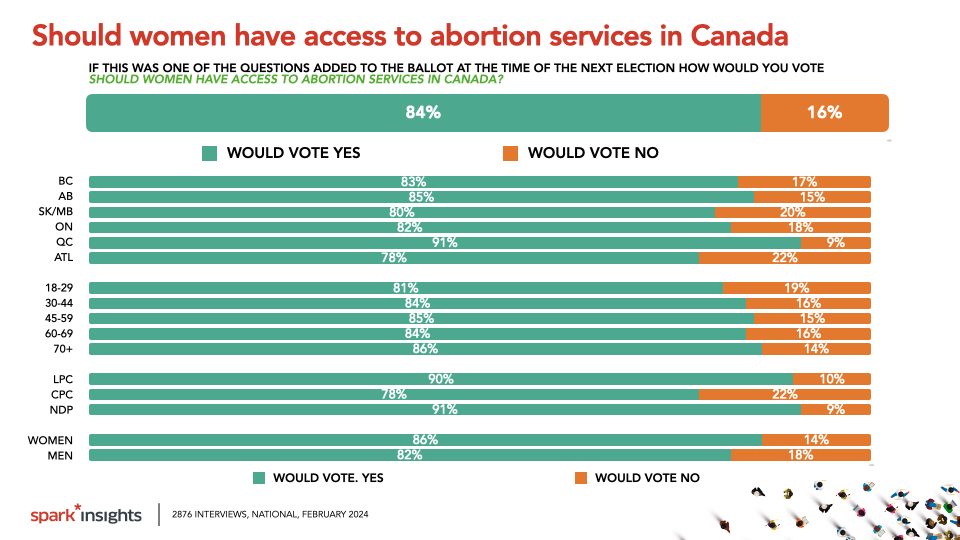
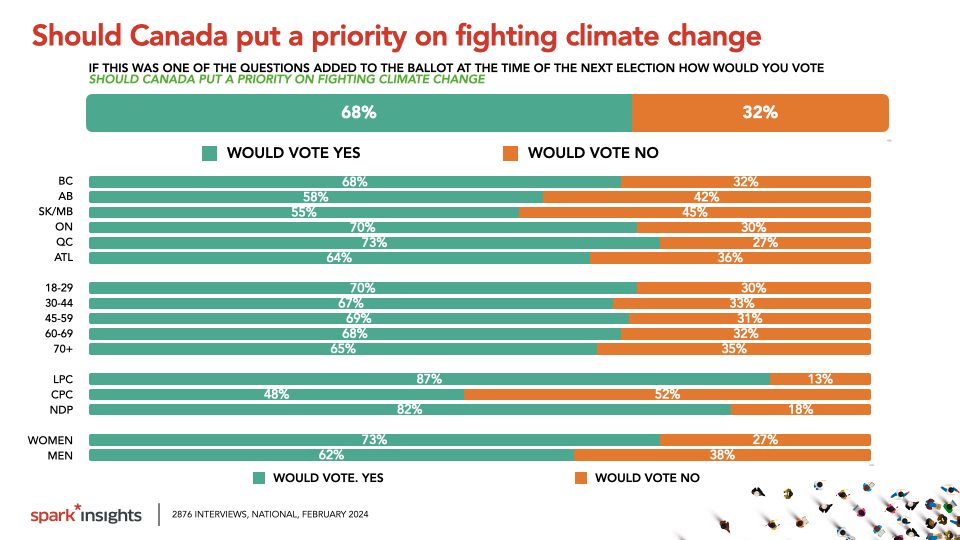
Would adding plebiscite questions increase voter turnout?
The average turnout rate in the last five federal elections was 63.5%. We asked people if the presence of these questions on a ballot would increase the chances that they would vote.
A large majority said they would be more inclined to vote if each of the questions was put on a national ballot (71%-79% depending on the question), and between 40% and 48% said they would be “a lot more likely to vote”.
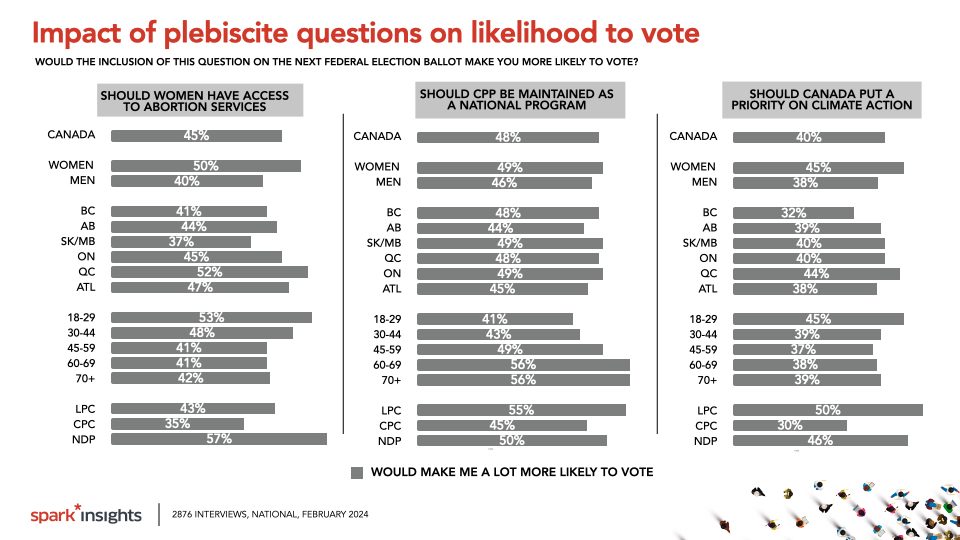
Bruce Anderson: “Politics has been highly charged around many issues, cultural and otherwise in recent years. Political leaders are often characterizing what they believe are broadly shared values, but in a time of such apparent polarization it could be interesting to use plebiscite questions as a way to let voters shape this discussion themselves. Our first past the post system really only allows us to draw inferences about how people feel about some of the larger values based or policy questions.
While the US regularly has many state and local level initiative ballots, and many countries including Switzerland, Italy, Ireland, France, and the UK have used national referendums on different issues – Canada has only taken the measure of public preferences this way on three occasions: 1898 on prohibition; 1942 on conscription; and 1992 on the Charlottetown Accord.
The response to these questions suggests that the public in Canada would welcome the use of plebiscite questions and that doing so could help boost voter turnout and public engagement in matters of national importance."
The data referenced were gathered online, with a representative sample of 2876 adults across Canada, between the dates February 9, 2024 and February 19, 2024.
spark*insights is led by Bruce Anderson, one of Canada’s leading and most experienced public opinion researchers. From polling and research to analysis and guidance, we help organizations, uncover the factors driving or influencing public perception to gain valuable insights into the shape and movement of the landscape.